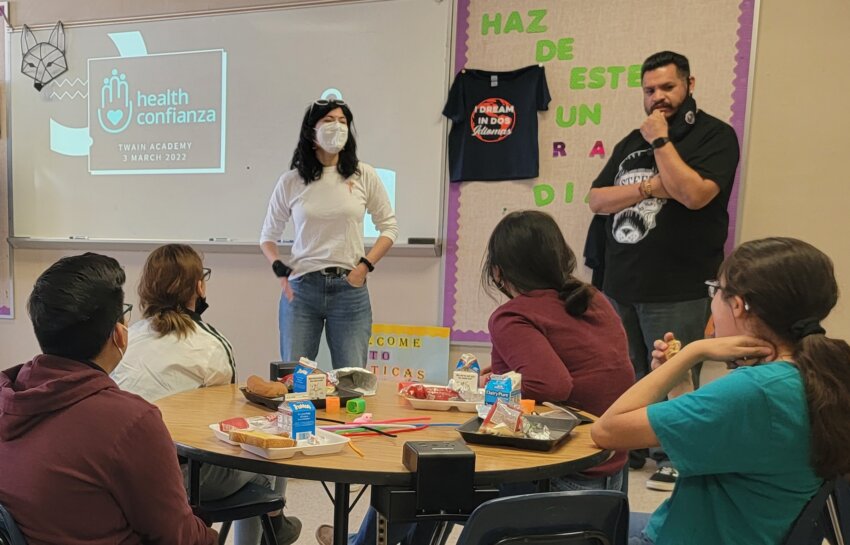Health Confianza inspires trust and confidence to make decisions
Contact: Will Sansom, 210-567-2579, sansom@uthscsa.edu
SAN ANTONIO (May 13, 2022) — A stalwart team at The University of Texas Health Science Center at San Antonio (UT Health San Antonio) is engaging health care providers, community members and organizations to improve health literacy and increase the public’s trust in health-affirming messages. The project, made possible by a grant from the U.S. Department of Health and Human Services to the San Antonio Metropolitan Health District, is called “Health Confianza.” (Confianza is the Spanish word for “confidence” and/or “trust.”)
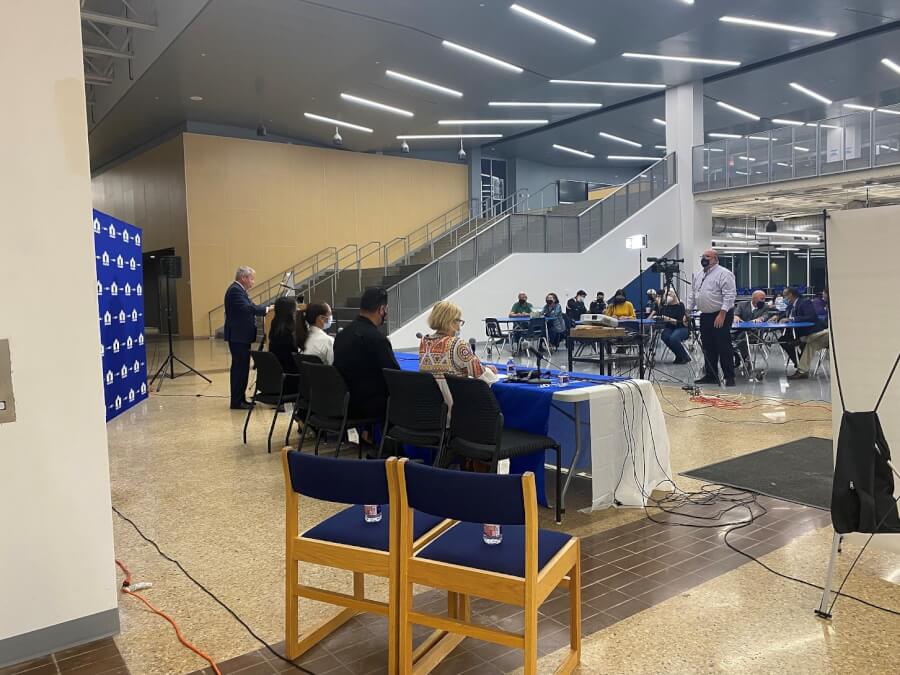
The project began in July 2021 and continues work launched by the city- and countywide COVID-19 Community Response and Equity Coalition.
“The goal of Health Confianza is to increase the availability of, access to and use of health information and services to reduce health inequities among African American and Hispanic populations in San Antonio,” said Jason Rosenfeld, DrPH, MPH, implementing director of Health Confianza at UT Health San Antonio. He is assistant director of global health and assistant professor of the university’s Center for Medical Humanities and Ethics.
Health Confianza targets 22 ZIP codes on the south, west and east sides of San Antonio that, based on available data, had the highest COVID rates, hospitalizations and deaths and the lowest vaccination rates as of June 2021. The team is collaborating with partners to increase vaccinations and improve community members’ understanding of the pandemic.
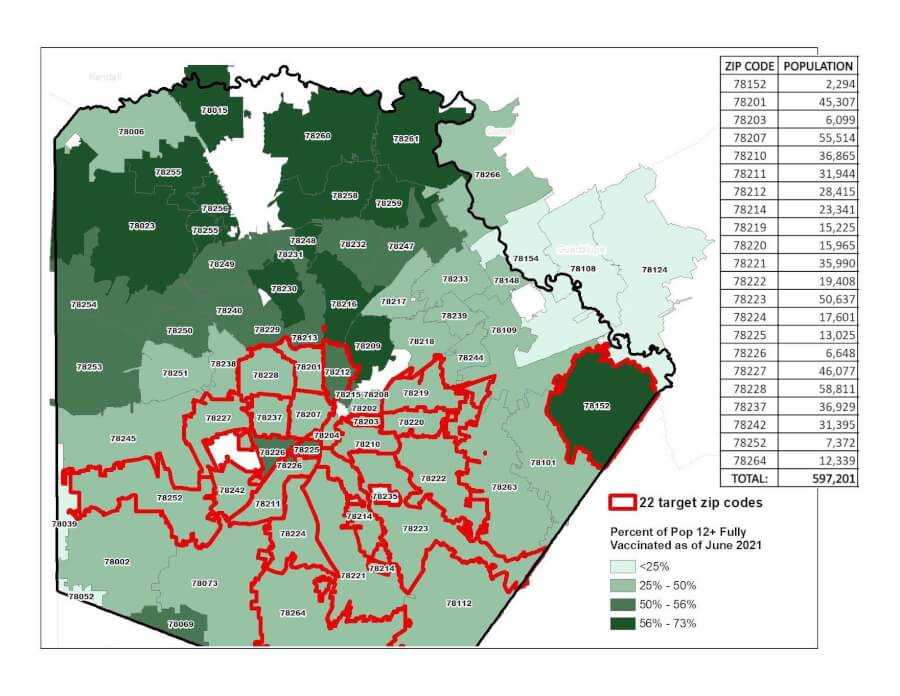 “Our job is not to tell people what to do,” Dr. Rosenfeld said. “Instead, we are helping people gain access to trustworthy, reliable information that is scientifically accurate, which empowers them to make the best decisions for themselves and for their families.”
“Our job is not to tell people what to do,” Dr. Rosenfeld said. “Instead, we are helping people gain access to trustworthy, reliable information that is scientifically accurate, which empowers them to make the best decisions for themselves and for their families.”
The project team views the pandemic as a launching pad into addressing broader health literacy issues such as, for example, cancer prevention through screenings. The strategy is multilayered, featuring:
- Training for health care workers to improve interpersonal communication, ensuring that conversations are effective, respectful, and culturally and linguistically appropriate.
- Community health education and outreach to help people identify fact from fiction, help them seek services that are close to them, and increase their reliance on trustworthy media and social media sources of information.
- Organizational health literacy to help nonprofit and for-profit leaders think about policies and systems they have in place and how those promote health and health literacy among employees and the communities they serve.
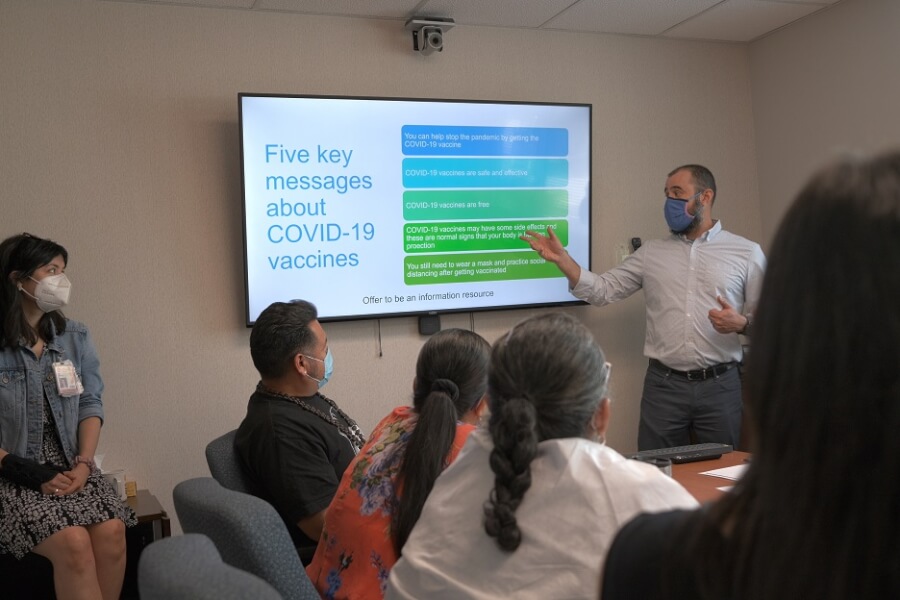
“Our goal is to train everyone — health care providers, faith leaders, school leaders, students — to acknowledge people’s perspectives and beliefs,” said Mia Vento, Health Confianza project manager. “We don’t have to agree with what everyone says, but we should at least acknowledge it and recognize that others have valid ways of thinking and believing. Their cultural and normative values are real. With that understanding, we can help people navigate within the system to improve health and well-being.”
Rebuilding trust
The 22 ZIP codes encompass 600,000 people in Bexar County, including groups that have been disenfranchised from health care and information.
“Confianza is confidence, it’s trust, it’s understanding, so Health Confianza is about rebuilding trust and repairing the broken relationship a lot of people have with the health care system,” Vento said. “It’s also about building confidence in the knowledge they have and the choices they’re making.”
Vento said the team has helped nearly 8,000 people in the past few months through vaccine clinics, training and town halls.
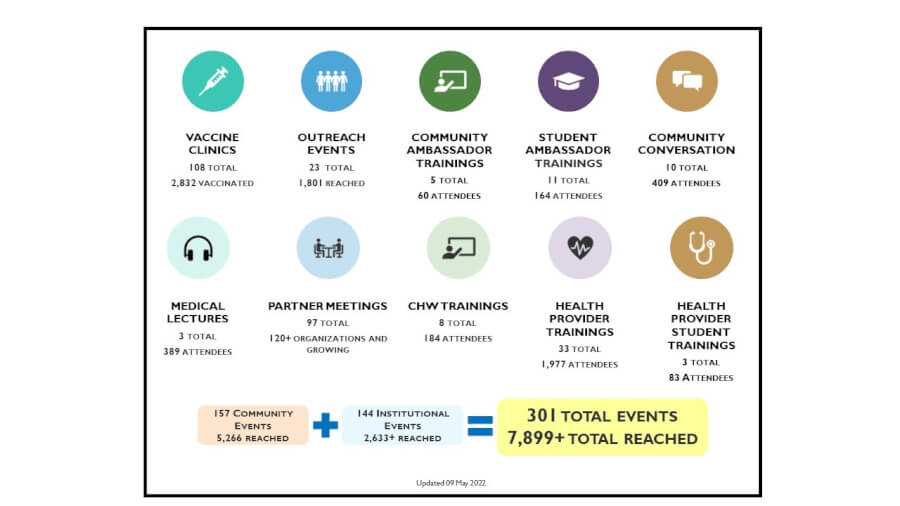
Partners
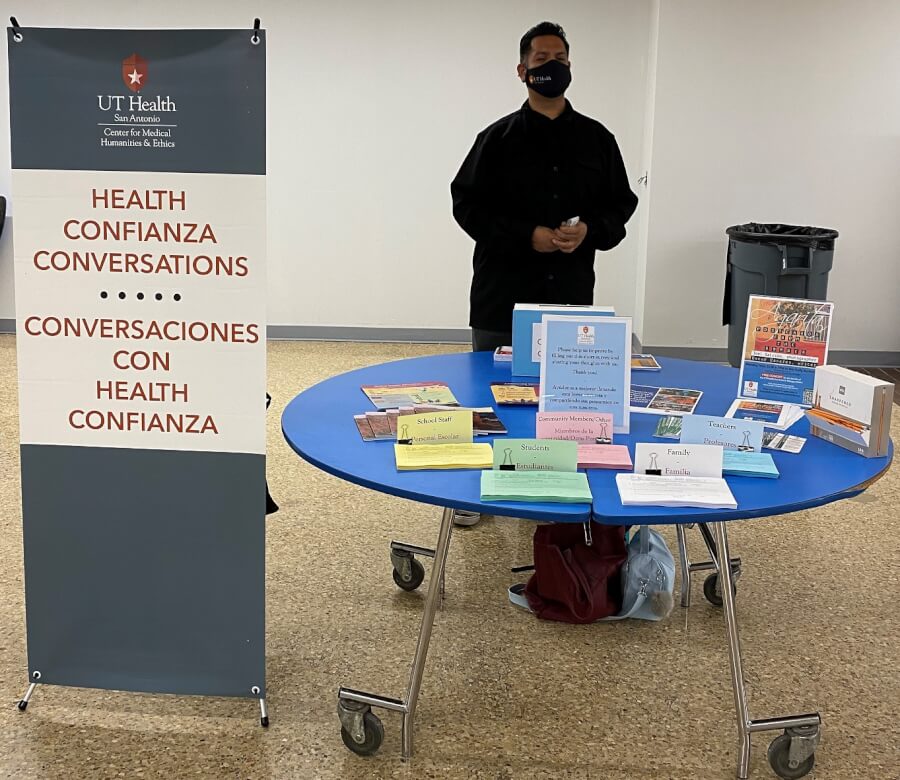
UT Health San Antonio is designing and implementing the Health Confianza intervention strategies, training content, messaging, a website and social media presence. The University of Texas at San Antonio, a key collaborator, is designing evaluation strategy to demonstrate the impact of all these projects. Final impacts are expected to be shared in the summer or fall of 2023.
Ruth Berggren, MD, professor of medicine and director of the Center for Medical Humanities and Ethics at UT Health San Antonio, and Melanie Stone, also of the humanities and ethics center, are co-investigators. Adelita Cantu, PhD, RN, of the UT Health San Antonio School of Nursing, is a faculty adviser. Consultative support is also provided by Joel Tsevat, MD, and the Center for Research to Advance Community Health at UT Health San Antonio.
The U.S. Department of Health and Human Services awarded 72 such grants across the nation. San Antonio is the only Texas city, apart from Dallas, that received the funding. “We are proud to be one of the few here in Texas implementing this program,” Dr. Rosenfeld said.
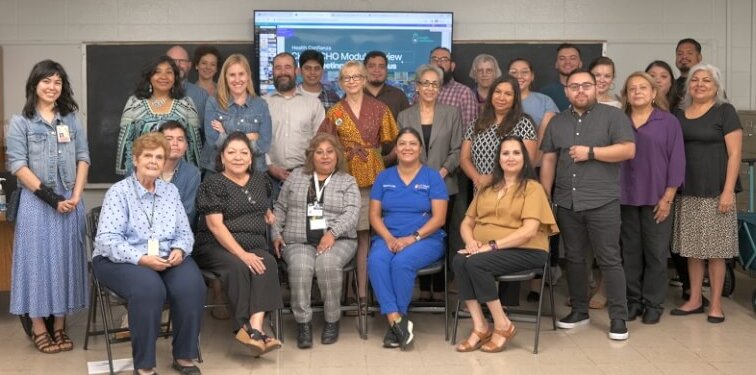
The University of Texas Health Science Center at San Antonio (UT Health San Antonio) is a primary driver for San Antonio’s $42.4 billion health care and biosciences sector, the city’s largest economic generator. Driving substantial economic impact with its five professional schools, a diverse workforce of 7,200, an annual operating budget of more than $1 billion and a clinical practice that provides more than 2 million patient visits each year, UT Health San Antonio plans to add more than 1,500 higher-wage jobs over the next five years to serve San Antonio, Bexar County and South Texas. UT Health San Antonio is the largest research university in South Texas with an annual research portfolio of approximately $350 million. To learn about the many ways “We make lives better®,” visit http://www.uthscsa.edu.
Stay connected with The University of Texas Health Science Center at San Antonio on Facebook, Twitter, LinkedIn, Instagram and YouTube.


